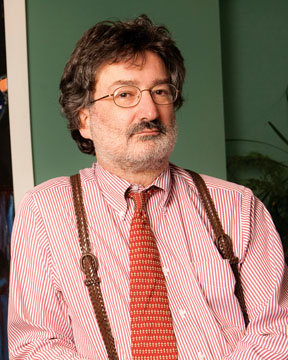The debate on finding the ideal balance between zealous advocacy and maintaining civility in the courtroom continued this week at the Law Society of Upper Canada discipline hearing for Toronto securities lawyer Joe Groia.

“A person who is in the position of the accused may be friendless,” said University of Calgary law professor Alice Woolley at the hearing. “Their lawyer is the only person who will stand by them when nobody else will.”
Woolley, who has published on the issue of civility — including a paper entitled “Does Civility Matter,” — was called by Groia’s counsel to testify on his behalf. Groia’s conduct in his defence of former Bre-X vice-chairman John Felderhof is currently under review.
Woolley told the three-member LSUC panel the different interests she believes the defence and prosecution represent at trial. “The defence acts for the accused, who has a personal amount at stake,” she said. “The prosecutor acts for no particular interest other than a result that is procedurally fair — there are more cards stacked in their deck than the defence.”
While she believes lawyers must be bound by some standards of legality, Woolley said an accused requires a zealous advocate to ensure the prosecution abides by their responsibilities.
“There have been a number of historical cases where those Crown duties have not been fulfilled and there has not been a miscarriage of justice,” Woolley said.
After a six-day break in proceedings, Groia’s counsel had criminal defence lawyer Brian Greenspan testify on his behalf this morning. Greenspan, a partner with Greenspan Humphrey Lavine, was called by Groia to assist in the Felderhof case when the Ontario Securities Commission made an application to remove Ontario Superior Court Justice Peter Hryn from the trial. “The OSC made an application for the loss of jurisdiction of Justice Hryn to continue with the trial based on various failures to rule on motions and control the proceedings before him,” he said.
According to Greenspan, while Groia’s conduct during the trial was highlighted in the OSC’s 643-page factum, his focus was to ensure the Felderhof trial resumed in front of Hryn as expediently as possible. “Although we were somewhat responsive to the [allegations of misconduct], we didn’t view it as being a trial of that issue or want to make allegations of inappropriate conduct against the OSC,” Greenspan said. “Mr. Felderhof’s view and position was . . . to keep this trial going to its conclusion,” he added.
Greenspan said ultimately the approach he and Groia took was vindicated, as justice Archie Campbell dismissed the OSC’s allegations, allowing Hryn to continue presiding over the trial.
Regarding Campbell’s comments on Groia’s behaviour — which included that he engaged in “guerilla theatre” — Greenspan said they must be taken in context. “With respect to justice Campbell . . . these comments fit in with an entire section, which noted that it had been a ‘difficult and hard fought trial’,’” Greenspan said.
Update: While cross examining Greenspan, Tom Curry, a partner with Lenczner Slaght LLP, went through in detail the statements Court of Appeal Justice Marc Rosenberg made regarding Groia’s conduct during the trial.
For example, he noted Rosenberg’s statement that, “Mr. Groia’s obligation to advance his client’s case did not give him the right to continue to make claims of professional misconduct and abuse of process that had no substance and before he was prepared to fully argue the issues.”
In response to these statements, Greenspan said he believes they were made in the context of how Rosenberg would have wanted the trial to be heard, adding that defence counsel will often take their lead from the trial judge.
“The way I perceive this, Mr. Groia was make repeated accusations, and they were to some extent finding a receptive judge who was increasingly of the view that the Crown were misconducting,” he said.
“If a judge is letting me do something … and I think I have a receptive judge to the argument, it’s pretty hard to put the brakes on and say ‘I’m not going to pursue that argument because some people may see it as unseemly.’”
Greenspan was also adamant that despite the lengthy process of the trial and critique of Groia’s conduct during its first 70 days, he was vindicated by the result.
“The first 70 days as I see it were part of what led to Mr. Felderhof’s acquittal . . . that’s the ultimate vindication of those days.”
The hearing continues Friday with testimony from Stanley Fisher, counsel at Heenan Blaikie LLP.
For more on the Groia case, read these articles: OSC sought conviction at all costs: Groia; Groia defends 'forceful advocacy’; Hearing will send a chill: Groia

 “A person who is in the position of the accused may be friendless,” said University of Calgary law professor Alice Woolley at the hearing. “Their lawyer is the only person who will stand by them when nobody else will.”
“A person who is in the position of the accused may be friendless,” said University of Calgary law professor Alice Woolley at the hearing. “Their lawyer is the only person who will stand by them when nobody else will.”